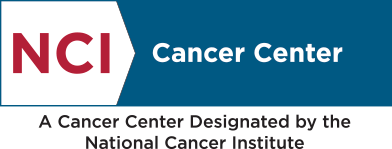Discovering hope.
All day, every day.
No one is more prepared to fight your cancer.
Phase 1 Clinical Trials
We are home to the only academic Phase 1 Clinical Trials program in South Florida. Learn more.
Search Clinical Trials

At Sylvester Comprehensive Cancer Center, we’re committed to advancing the future of cancer treatment. Our clinical research studies determine the safety and effectiveness of new drugs and innovative therapies for various cancer types, from common to rare.
As the only cancer center in South Florida designated by the National Cancer Institute (NCI), we’re home to the only academic Phase 1 clinical trials program in South Florida. We conduct more cancer research studies than anywhere else in the region. In fact, our researchers currently participate in more than 550 clinical trials.
Our mission is to turn groundbreaking discoveries into real-world benefits for patients everywhere. We’re dedicated to ensuring that innovative findings reach those who need them as quickly and safely as possible. Cancer patients who enroll in our studies are instrumental in achieving this goal.
If you meet specific criteria, your doctor may suggest you enroll in one of our cancer clinical trials, giving you access to promising cancer treatments not yet widely available.
The Role of Clinical Trials in Cancer Care
Oncology researchers use clinical trials to evaluate new drugs, therapies, and diagnostic tools to identify more effective ways to fight cancer. These studies help us determine if a new therapy, such as a recently developed drug or medical device, is more effective or has fewer harmful side effects than the standard treatment. Clinical trials also explore new uses for existing cancer treatments or gauge the long-term effects of a particular therapy on cancer cells.

Clinical Trials by Disease Site
Clinical Trials by Trial Type
Phases of Clinical Trials
Clinical trials are divided into four phases—Phase I to Phase IV—during which new treatments are evaluated as they progress toward approval from the Food and Drug Administration (FDA). Generally, it takes many years of research and testing before a new treatment is approved for general use.
Understand the Risks and Benefits
Enrolling in a clinical trial can give you early access to cutting-edge cancer treatments. Still, because these treatments are unproven, there are risks. It is essential to thoroughly discuss potential benefits and risks with your doctor before deciding whether a clinical trial is right for you.